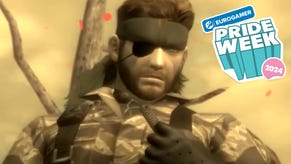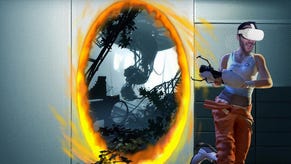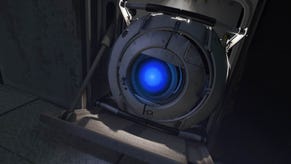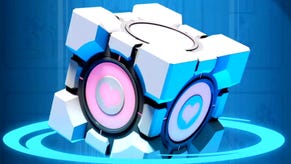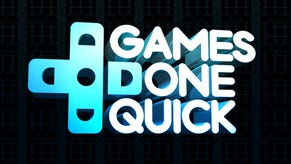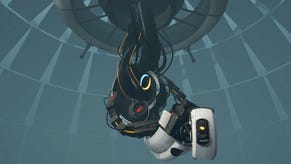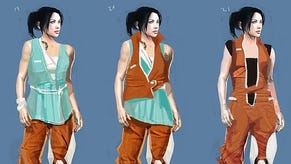Portal 2: "Let's make Caddyshack"
Erik Wolpaw on writing the great video game comedy.
SPOILER WARNING! This interview is about the plot, characters and script of Portal 2, so it necessarily contains spoilers right through to the game's ending. You should wait until you've completed the game to read it (which is why we've held publication back until today).
Erik Wolpaw looks tired. The mousy, bespectacled writer has a cracked voice and a bad cold. He seems nonplussed because, at the time of this interview in Valve's offices overlooking a typically drizzly Bellevue, Washington, he finished work on Portal 2 four weeks ago, yet there's still four weeks to go until its release. He's in limbo.
Hopefully he feels better now, because his game is out in the wild, being loved by players and showered in praise by critics – including me, in our 10/10 Portal 2 review.
As its scriptwriter, along with National Lampoon veteran Jay Pinkerton and his former collaborator on the Old Man Murray website, Chet Faliszek, Wolpaw's contribution to its brilliance and success is not small. "It's both shameless and devastatingly successful in its pursuit of belly laughs," I wrote. "Portal was a sequence of great jokes, but Portal 2 is that rare beast, an actual video game comedy – and one of the funniest ever."
It's an even greater achievement when you consider that Portal 2 manages this with no 'actors' on the screen. Wolpaw and Pinkerton (Faliszek came on later and mostly contributed lines to the co-op campaign) successfully conjure characters from voices that are either idiotic, psychopathic machines or recorded ghosts from the distant past – and in doing so, they expand the icy skit of the original Portal into both a human drama and a compelling action yarn.
So I'm eager to ask Wolpaw (who, before joining Valve as a writer, contributed to the script for Double Fine's brilliant Psychonauts) how they pulled it off. Remember: spoilers!
Oh yeah. From a writing perspective, it's this ongoing process here – because we're embedded with the game teams, so it's not like you're writing a script and you hand it off to somebody two years ago and hope that everything turns out alright in the end.
You're there all the way to the end, both in good and bad ways. You can kinda make sure that things are the way you want them by the time it comes out. So if it comes out and everybody hates it, I don't have anyone to blame from a writing perspective but me. I can't say anybody screwed anything up.
Yeah, so we knew it was going to be a bigger game – although having said that, the thing we tried to hang onto from the writing perspective was that we didn't want to make this galaxy-spanning cast-of-thousands sort of sequel. The goal was to still make it feel relatively intimate as video game stories go – it's still about this relationship between you and GLaDOS, and then how that relationship gets complicated by these various other characters.
Because, to me, that's something about Portal 1 – it just felt like a small-scale story. Video games tend to go really broad, like, if you're not saving the universe, then why even make the game? This being just about you and GlaDOS – and especially given the events of Half-Life, assuming those are going on outside, this is pretty small-scale – it matters to you and her, and probably Wheatley, and nobody else on the planet. They all have bigger things to deal with.
Well, initially we wanted him to be this little bit of a guide to new players and also a catalyst for events in the sequel.
There's also the idea... Our original character was not Chell from the first game. You were a new test subject, so you don't really know... you have no real relationship with GLaDOS, and you get to a point where you kind of press the button to wake her up, because as a character you didn't really know what your actions were doing.


